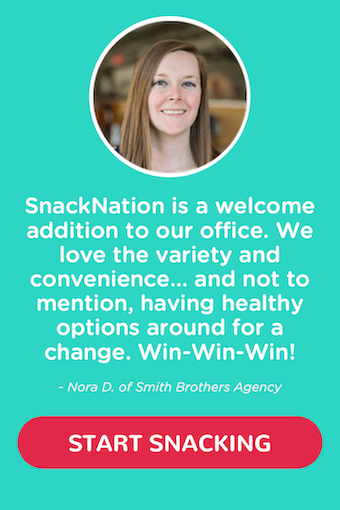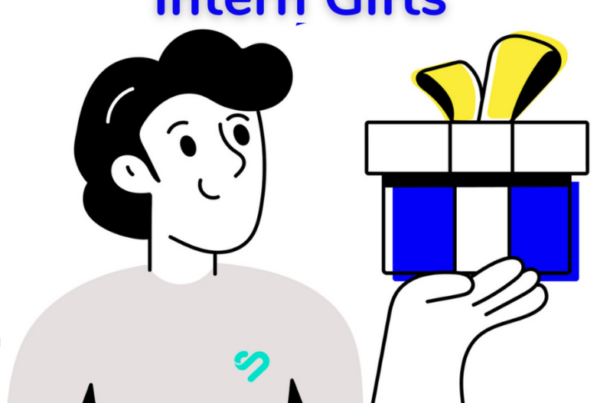
Increase your chances of landing that Executive Assistant job you’ve been hunting for! Prepare for your upcoming interview by brushing up on the most common Executive Assistant interview questions. (Even if you don’t have an interview yet, it never hurts to start preparing early, does it?)
Studying Executive Assistant interview questions provides tons of benefits that go beyond simply being perfectly prepared for an interview. By figuring out how you might answer the most common Executive Assistant interview questions, you’ll also:
- Learn exactly what skills you need to prepare for an interview and to excel as an Executive Assistant
- Discover which skills are most important for the role you aspire to
- Surprise yourself by learning how you would handle situations that arise in the workplace
- Mentally prepare to take on common workplace scenarios
- Learn about the priorities of your future employers
So prepare for your upcoming interview and also the job you hope to land by reviewing and developing answers to the most common Executive Assistant interview questions.
We’ve got your study guide below!
Some of these questions came from our Facebook group of Executive Assistants! See what nuggets of wisdom our community has to offer and jump into the conversation. Join the group here.
Executive Assistant Interview Questions
Scheme up your answers to these questions to prepare for your upcoming interview. We recommend using a software like monday.com to help you organize candidates and also track where they are at in the interview process.
Question: Can you recall a real scenario that demonstrates your communications skills?
- Why they’re asking: They want to know that you have strong communications skills, and they want to hear about a specific scenario that illustrates your communication skills in an understandable way.
Interviewers will especially want to hear about scenarios where you overcame obstacles that arose as a result of poor communication in the workplace. These scenarios include communication breakdowns, widespread confusion, and a general lack of consensus.
- How to respond: Provide the specificity your future employer wants. Limit your “mental scan” to a few specific situations to avoid getting overwhelmed by all the possible scenarios you’ve experienced in the workplace. For example, since a lot of workplace communication happens during meetings, limit your memory search to meetings to make it easy to find examples of communication successes and failures.
A good answer to this question needs to include two main components:
1) What exactly you did and said
2) What exactly you accomplished or what problem you solved.
If your answer lacks either of these components, then it could be empty.

Question: I see on your resume that you ranked your event-planning skills as “expert.” Can you explain your approach to planning events and also explain how you evaluate an event’s success?
- Why they’re asking: While your interviewer certainly wants to know that you have solid event-planning skills, the real core of this interview question revolves around testing your communications skills. Do you know how to quickly and clearly explain the complex process of event planning? Can you articulate how you determine if the events you plan are successful and can you do this without any preparation?
- How to respond: For this question, borrow from the “rule of three,” a storytelling trick that essentially asserts that the most important pieces of information are typically revealed in threes. (Three also happens to be the ideal quantity of information “bits” most people can absorb and recall at one time.) Therefore, when you’re describing your event-planning or any other process, limit your explanation to three parts:
1) How you get started
2) How you overcome obstacles to get things done
3) How you finish things up so everything is in good working order
Question: How do you anticipate the needs of an executive?
Source: Indeed
- Why they’re asking: No prior experience will demonstrate that a candidate has the ability to anticipate an executive’s needs. Interviewers need to ask this question if they hope to get an idea of a candidate’s anticipation skills during an interview. (Of course, they can always call references, review the interview recording, dive into your resumé, etc.)
- How to respond: This is another example where context will go a long way to illustrate your point. So explain the process you take to anticipate an executive’s needs, using the rule of three trick we pointed out earlier. Then give specific examples of each step in your process to drive the points home. For example, how do you first detect needs? Do you listen in on meetings? Do you watch for certain behaviors? Do you make connections as you hear news from different people?
As a major bonus, also provide an example of a time you used your process to accomplish something. Maybe you can tell the interviewers about a time you knew exactly what to include in your executive’s presentation without even needing to ask. Or maybe you can recap the spectacular thank-you you received when you set up a few strategic meetings at a conference before your boss even had to think about it.

Question: Have you ever worked on anything that didn’t turn out as you expected? How did you handle that situation?
Source: Glassdoor
- Why they’re asking: Potential employers want to hire Executive Assistants with the resilience and persistence it takes to recover from failures (or diverted plans) and still accomplish the original intended goals. By asking this question, the interviewer can get a sense of whether or not the interviewee will give up or work through setbacks. It also provides a sense of how a candidate may handle failures or changes.
- How to respond: Don’t be afraid to choose a huge setback; although it might be initially embarrassing or hard to talk about, the true key to a good answer lies in demonstrating that you overcame something and persevered against the odds. Your answer needs to play up your ability to solve problems, so you can use any example you like, as long as it shows that you can roll with the punches. Be sure you explain how the situation went against your plans and describe how you “pivoted” the situation to achieve a positive outcome.
Question: Why do you want to be an Executive Assistant?
- Why they’re asking: EA positions require dedication. These jobs involve a lot of work and emotional dedication, so an interviewer will ask this question to gauge the candidate’s desire to do the specific job at the specific company. The last thing the interviewees need is a candidate who simply “needs a job.” A person who really wants to be an Executive Assistant will go above and beyond, and that is is the kind of candidate the recruiters will want in the position.
- How to respond: Above all else, this answer must be authentic. Select a few aspects of EA work that truly excite you and elaborate on those items in detail. To be authentic, you’ll need to have a true emotional reaction to what you’re talking about, so be honest with yourself on what you’re looking forward to and why.
Go ahead and consider why you think those items will benefit you. Your answer won’t be convincing if you don’t honestly see a benefit in doing what you do.
Question: What software and technologies are you skilled in using?
Source: The Balance Careers
- Why they’re asking: Potential employers want to know you have skill and talent, but they also want to know that you can work intelligently by leveraging tools to make your work better, faster, or more efficient.
- How to respond: Before the interview, isolate a few technologies you have mastered and that also provide you with demonstrable benefits. Provide another thorough, three-part answer. Here’s how:
1) Briefly explain the technology if the interviewer isn’t immediately familiar with it
2) Explain what purpose or goal you used it to meet
3) Try to find something in the job description that you might leverage the software to accomplish. This shows that know how to translate your current skills toward a variety of different tasks.
Questions to Ask the Interviewer

Even if you ace all the interviewer’s questions, you’ll still need to present a few of your own. Questioning the interviewer helps answer some of your burning questions, and it also helps demonstrate that you have a vested interest in the position.
Question: I read about [insert news about a new company project or initiative] on [source of the news]. Would my position be involved in that?
- Why you should ask: It shows that you’ve done your homework, that you’re ready to dive in, and that you have strong anticipation skills.

Question: Do you have any concerns or hesitations about my experience that I can address right now?
- Why you should ask: If the interviewers have any questions or concerns that they haven’t yet asked you about, then they will likely discuss them when they’re considering candidates. If you address these concerns head-on, then you might be able remove some of their hesitations, hesitations that might otherwise stop them from hiring you. In fact, your answers might impress them so much that you climb the ranks and rise to the top of the candidate list.
Question: Describe the day-to-day routine of this position.
- Why you should ask: No games here! This question helps you find out what exactly you’ll be doing every day. Even if the prospect of planning one annual event excites you, just one big project won’t be enough to keep you satisfied if your day-to-day routine doesn’t meet your expectations.

Question: What do you like most about working here?
- Why you should ask: This question will give you a glimpse of whether or not the person interviewing you truly enjoys working at the company. If the person tries to make a joke or dodge the question, then they might not be as superbly satisfied as they seem.
Question: What do you think my biggest challenge would be?
- Why you should ask: It shows that you’re ready to take the challenges along with the perks, and it shows that you’ve been around the block enough times to know that you have to prepare for challenges.
Question: What made you call me for an interview?
- Why you should ask: It gives you a chance to satisfy your curiosity and also to remind the interviewer of your strengths, especially which of your qualities they see as strengths. Provide a little more detail about each point they mention to emphasize your qualifications.
(PS – Get more sh*t done with The Assist — the #1 free weekly newsletter made for assistants by assistants.)
If you’ve ever been on an interview, then we’re sure you have something to add to this list! Share your questions in the comments below.








Nice mam. Basically the “Questions to Ask the Interviewer” is accurate and superb.
Great Stuff! I have been asking myself what questions to ask my interviewers after my interview.. This is my cheat sheet!!! Thank you!
Great to hear! Good luck on your interviews!
Great questions.This makes me feel ready for my interview!!!!
Good luck Sipho!
On point
I close this page with a grateful and peaceful sense of confidence.
Your questions and provided answers are perfect examples of professional and to-the-point questions/answers.
Thank you so much for taking the time to create this blog for those of us who needed a boost!
I’m thankful it popped up in my search – the timing was impeccable. Be blessed!
Here you will get to know about the executive assistant interviews questions.Such illustrations are given that a layman could even understand. It is an easy to comprehend blog which can be instigated by all atleast once. I am sure many people will come to read this in future.
Thanks so much for this guide really helped me especially the responses and the questions to ask my interviewer